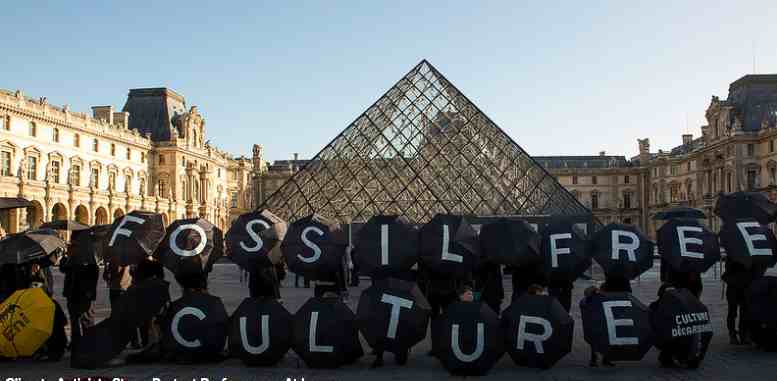In what may be one of the most significant developments ever seen in the 21-year history of the UN climate negotiations, a new coalition has emerged that combines the US, European nations, oil producers and vulnerable nations pushing for an ambitious outcome to the talks.
The new grouping, called the Coalition for Ambition, has pulled in support from more than 100 countries with a range of economic drivers and motivations.
They include Pacific nations, vulnerable African countries, oil producers such as Mexico, Norway and other European countries, and the US. Australia is not a member of the grouping because, Marshall Islands foreign minister Tony de Brum told RenewEconomy, it had not yet been invited.
The grouping is seen by analysts as a sign that the most significant negotiating blocs at the Paris talks, the G77, representing China and developing countries, is showing signs of fracture.
Apart from a common interest in finance, the needs of these countries now vary widely. China, facing crippling pollution at home, is prepared for a deal. India, seeking rapid growth, is playing hardball. The OPEC countries, such as Saudi Arabia and Venezuela, are trying to dilute the target. Poor and vulnerable nations want an ambitious and legally binding deal.
The first signs of division emerged earlier this week, when Venezuela, Malaysia and Cuba tried to prise the grip of France on guiding the negotiations, only to be slapped down by the Marshall Islands and South Africa.
The contrast between the oil producers of Saudi Arabia and Venezuela and Mexico was striking. “We are a big oil producer, but we still want high ambition,” the Mexico representative said on Wednesday.
Noted one veteran observer: “I can’t recall a CoP (conference of the parties) where you have the US, EU, and the most vulnerable parties standing up and calling for the need to reference 1.5°C as a target.”
Paris text tidies up, but still ducks key issues
The Coalition for Ambition called their first news conference soon after the release of a new text by France, which they described as “not ambitious enough.”
“We will not accept a minimalist or bare bones agreement,” de Brum said. On the same stage, lead US negotiator Todd Stern argued for five-year revisions of national emissions commitments; a long-term carbon reduction goal; a recognition of 1.5 degrees; and transparency which provides a set of broad standards to measure national progress.
Of the new text, Stern said: “It is a step forward but (there is) a lot of work to do”.
In reality, the text proffered by France cleans up and narrows down the issue, but still leaves a range of options open – from very good, through to pretty weak. It is seen by some as favouring many of the positions held by the G77, to try to ensure they stay within the negotiating process. In short, it’s tactical.
Australia’s foreign minister Julie Bishop, who chairs the Umbrella Group, representing most developed non-EU countries, said she had met with French foreign minister Laurent Fabius, who outlined that the three key dividing lines were around ambition, differentiation, and finance.
Ambition is about whether the agreement targets “below 2°C, “well below 2°C, or 1.5°C, or includes 1.5°C as a reference that could be scaled up as a target at a later date.”
It also includes language around decarbonisation, or carbon neutrality, and over what period – by 2050, in the second half of the century, or by 2100. Australia is comfortable with the term decarbonisation, but not anytime soon.
Bishop suggested that the French would try again with a new text on Thursday, after more late night negotiations, and then again on Friday. The chances of the negotiations falling into the weekend are increasing.
Australia signs up for international grouping on carbon pricing
At the start of this conference, Australia backed out at the last minute on a group pledge to support the removal of fossil fuel subsidies – it likes to pretend it doesn’t have any. But in an intriguing move on Wednesday, Bishop said Australia had signed up to another New Zealand initiative, this time on international carbon pricing.
The grouping aims to tighten and control rules on international carbon permits, now generally accepted as crucial to the task of meeting the target of capping the rise in temperatures to less than 2°C.
But Bishop said this does not signal an about-face on domestic markets.
“It is just a declaration,” she said. “It is not legally binding. It is signaling our commitment to work with others on a carbon market post 2020.”
Australia’s Coalition government has previously said it will review its domestic policies in 2017, which may include the purchase of international carbon permits, a process made easier by the government’s announced ratification of the Kyoto Protocol at the start of the conference.
Butler says Coalition still ruled by climate sceptic rump
Labor environment spokesman Mark Butler has been in Paris for a few days, and remains unimpressed with the Coalition performance in Paris, particularly the disconnect between what it appears to be aiming for in Paris, and its domestic policies.
That, Butler said, was the result of Turnbull being unable, or unwilling, to tackle the conservative rump within his own party. This applied to emissions targets, policy structure, and on renewable energy.
“It’s going to be difficult to get strong climate policy that attracts a lot of investment while the Liberal Party stays in power,” he said.
Protesters take to the Louvre
Environmental groups took their protests to one of most iconic places in Paris, the Louvre museum, with hundreds surrounding the pyramid to protest the museum’s sponsorship by oil companies. Ten protesters were arrested inside the museum because of “unsanctioned performance action.”
The performance marks the first international collaboration of growing movement to liberate museums and cultural institutions from ties to fossil fuels, in a movement known as #FossilFreeCulture.
Australia wins its first fossil of the day award at Paris
Two years ago, soon after Tony Abbott was appointed prime minister and ordered a switch in negotiating stance, Australia was awarded numerous “fossil of the day” awards from environmental NGOs.
On Wednesday, it won its first of this COP, for the coal speech delivered by Bishop the day before.
Australia shared the award with Argentina, which is also talking up new coal projects.







